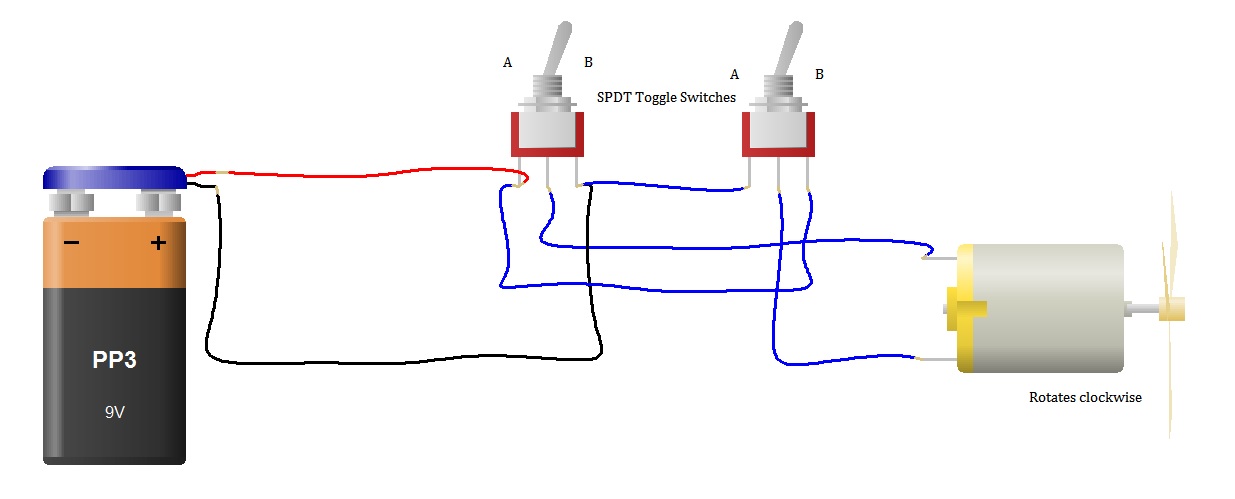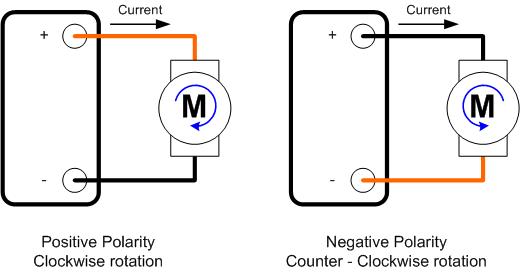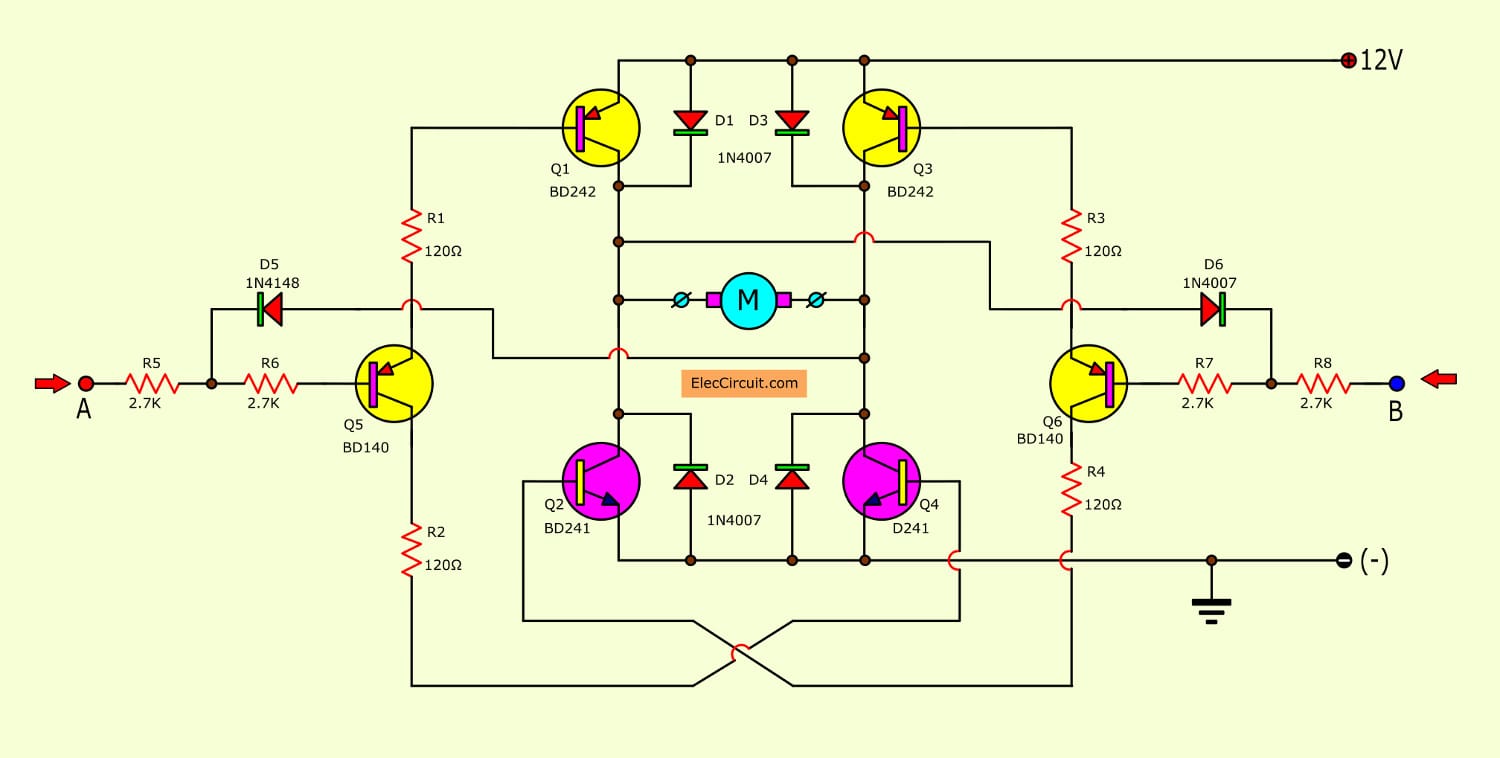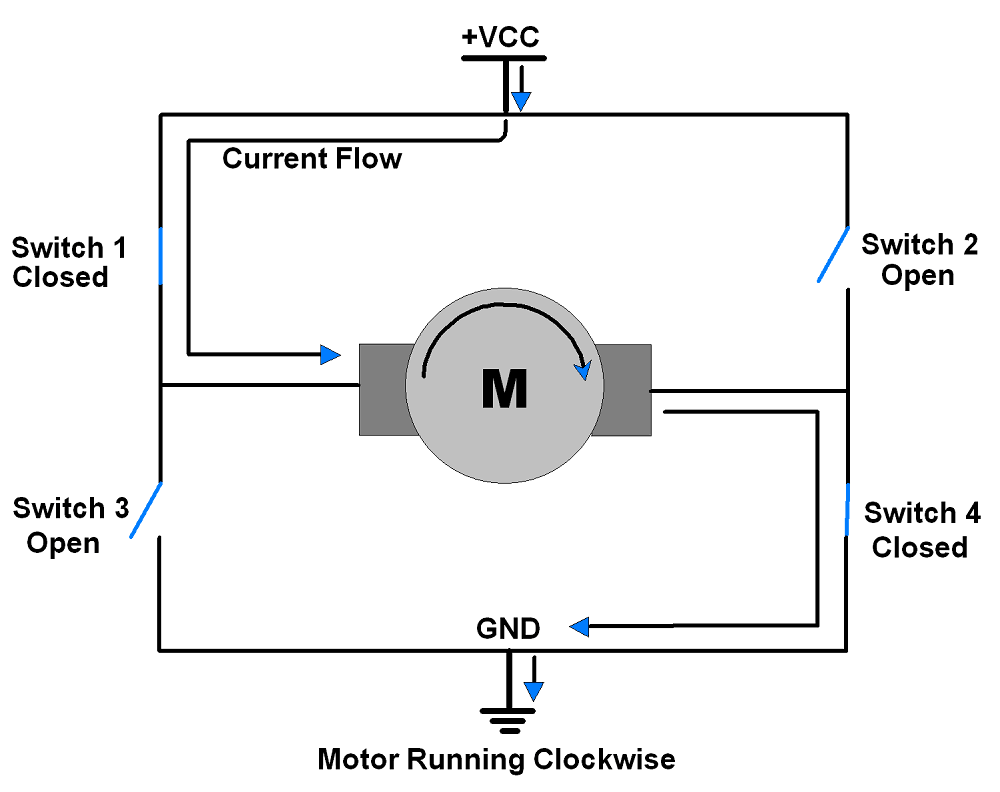Field and armature have separate winding. Flip the wires from the battery to the motor to make sure the motor turns in the other direction white wire from the positive end of the battery to the negative terminal of the motor black wire from the negative end of the battery to the positive terminal of the motor.

Speed And Direction Control For Dc Motors
Dc motor direction change. By changing the supply polarity in field winding or filed supply. Only take care that you change only the field or the rotary field. Which brushless drill is the best. If the motor doesnt turn check the connections. Yes you can change the direction of a dc motor by changing the field wires or by changing the armature wires. If you change the polarity then motor will rotate in opposite direction.
The word dc is basically an abbreviation of direct current. Forward reverse of dc motor. So a direct current motor is commonly used motor having two input terminals one is positive and the other one is negative. However you run the risk of changing a cumulative compound motor which is inherently stable into a differential compound motor which is somewhat unstable. So if we change the polarity of the supply the total circuit will change. If you change both at the same time you dont change the direction.
If we connect these terminals with the voltage supply the motor will rotate. A dc motor is an inductive load and can produce back emf when we are changing the direction. The high voltage dc motors which has 220v or above 220v made up of temporary magnet ie. In the circuit the motor terminals are connected between the two common poles of the relay. In order to eliminate the effect of any back emf four diodes are connected across the collector and emitter of each transistor. Simply put dc motors can turn in either direction clockwise or counter clockwise and can be easily controlled by inverting the polarity of the applied voltage.
The direction of a dc motor can be controlled with the input polarity at the motor terminals. Some dc motor basics a rotating armature and stationary field are the major components of a dc compound motor. Due to that the motor will rotate in normal direction. Field terminal consist of f1 and f2. Change the direction of rotation of a dc motor. So here we are using a simple dpdt relay arrangement for polarity alternation.
If a motor is already in motion the applied voltage can be inverted and the motor will decelerate quickly eventually stopping. Also in same way we can change the direction of dc motor by changing the polarity of the armature winding. You also can reverse direction by reversing field leads.

















